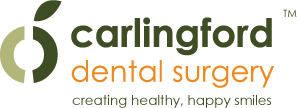Oral Hygiene & Diet
As soon as your child’s teeth begin to appear through the gums, at around 6 months of age, they need to be brushed. This can initially be done with a soft damp cloth then a toothbrush with a small head and soft-bristles. This early introduction to the toothbrush will establish good oral hygiene habits for your child.

You must always help your child to brush their teeth, and make it a fun and short daily routine after each meal. Don’t be too concerned initially if your child cannot keep still for a thorough clean. The frequency of brushing and a strict avoidance of unhealthy junk foods and drinks, especially those high in simple sugars will usually be enough to prevent tooth decay.

Children’s toothpaste with a lower fluoride concentration should be used to strengthen their primary and secondary teeth and prevent future cavities. Child will tend to swallow most of their toothpaste, so it is important to use a pea-sized amount of toothpaste and encourage the child to spit out all of the toothpaste upon finishing.
For the difficult-to-reach areas and tight contacts between teeth, a floss should also be used – these areas are also more prone to tooth decay. The staff at Carlingford Dental Surgery will be delighted to show you and your children how to correctly brush and floss your teeth!

What you eat greatly affects both your oral health and your general well being. Foods high in fat and sugars contribute to your weight and other health issues such as diabetes. In the mouth, these foods also cause a greater incidence of tooth decay.
When you eat or drink, especially products with sugar or starch, oral bacteria produces plaque acid, which attacks teeth for around 20-30 minutes after eating. Plaque is a sticky, clear film of bacteria that if not removed through daily brushing and flossing, will cause inflammation and bleeding of your gums. This is known as gingivitis. When left untreated, gingivitis can proceed to severe gum or periodontal disease and in extreme cases, degenerative bone loss.
The frequency of eating also affects your oral health. For instance, if you continually snack and sip sweetened drinks throughout the day, you will quickly expose your teeth and gums to decay-causing acids for prolonged periods. To limit your teeth’s exposure to acid, we recommend you refrain from or limit snacking between meals.
If you feel like a snack, choose tooth-friendly foods like nuts, raw vegetables such as carrots and celery sticks, cheese and fresh fruit in addition to fluoridated tap water and unsweetened tea. Chewing sugar-free gum can stimulate saliva production after eating and helps neutralise acid more rapidly.
